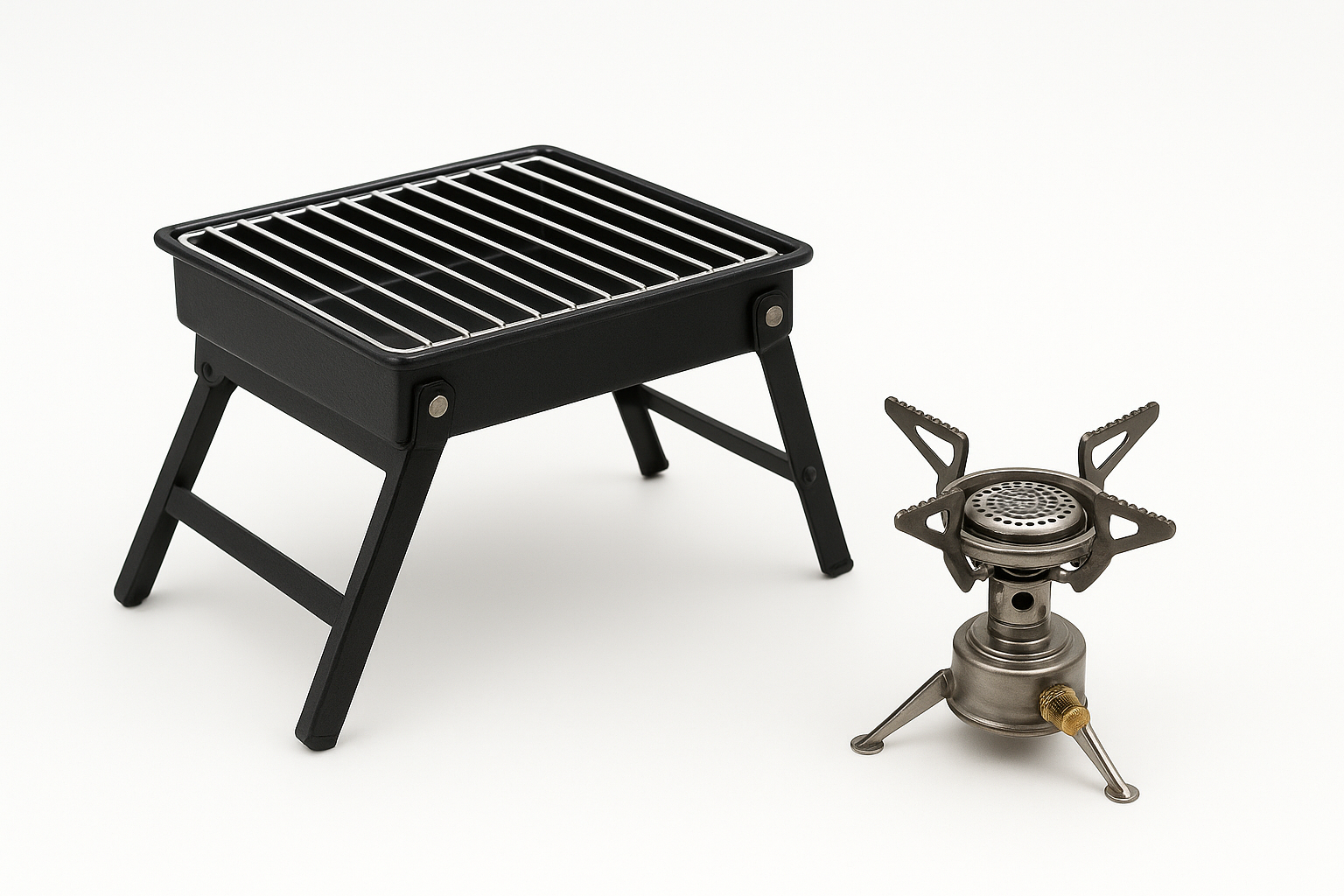-
Nieuws Feed
- EXPLORE
-
Blogs
-
Marketplace
Should Lightweight Hikers Consider Aijun Units For Multi Night Trips

Light packs move faster and feel lighter on the trail, which is why a carefully chosen Camping Grill And Stove can change the way backpackers think about food and fuel during multi day trips. Choosing a cooking system that balances weight and volume with cooking capacity frees up room for safety gear and comfort items while keeping meals satisfying and straightforward. This balance matters more now as outdoor recreation trends emphasize minimal impact and as many campers favor gear that supports longer outings with less logistic friction.
Why does weight matter so much for a person carrying everything on their back What hikers carry is multiplied by miles and climbs which makes even small savings meaningful. Lighter items reduce fatigue and help maintain pace over a day of travel. When the stove is light but sturdy it makes it easier to choose weather safe campsites and to keep cooking routines short and calm at the end of a long day.
Why is volume important in addition to weight Volume dictates how gear fits into a pack and how accessible it will be on the trail. A compact stove that nests with a pot or folds into a small bundle saves space and simplifies packing. Bulky items force trade offs: extra food or a thicker sleep pad may be sacrificed for oversized tools. Smart designs compress into useable packages so essentials stay reachable without reshuffling while on the move.
How do practical stove features reduce both weight and volume Look for units that combine functions like a stable stand and a cooking surface in a single assembly. Materials that balance strength and lightness reduce carried mass but do not compromise safety. Simpler assembly and fewer loose parts cut the time it takes to set up camp and lower the chance that something will be left behind on an afternoon hike. These design choices create small but cumulative gains that matter during a long trip.
How do current outdoor trends influence what backpackers choose Today the conversation around low waste travel and refillable fuel options is reshaping expectations for cooking gear. Many hikers prefer systems that support refill or that can use readily available fuel so resupply points are less stressful. At the same time climate and access changes prompt more people to plan for flexible cooking scenarios which encourages stoves with adjustable burn and efficient heat transfer.
What trade offs should a thoughtful backpacker weigh Speed of boil time convenience of ignition and the ability to cook for a group versus a solo user will shift priorities. A compact grill surface may add volume but it broadens meal options. A minimalist stove may save ounces but require more careful wind protection. Choosing gear that matches typical trip length and group size turns gear into an asset rather than a liability.
How can packing technique amplify the benefits of a compact stove Pack smart by nesting cookware inside the stove or using fuel containers that stack. Consolidate utensils and repair items in a single pouch. Keep frequent use items near the top for quick access. These habits reduce campsite fumbling and help preserve energy for the trail.
Why should serious hikers examine manufacturer guidance and compatibility Reading product notes about fuel types safe operating clearances and cleaning will prevent surprises. A reliable Camping Grill And Stove that is easy to maintain and versatile in its fuel options becomes a trip planner ally rather than a constraint.
If you want to cut carried load while keeping meal quality high choose versatile compact gear that fits your typical trip profile and supports easy maintenance and refueling. For details on models and configurations see the product listings and specifications at www.aijunware.com .
- Art
- Crafts
- Drinks
- Fitness
- Food
- Spellen
- Health
- Home
- Literature
- Music
- Networking
- Finance
- Other
- Hotels
- Shopping
- Sports
- Wellness


